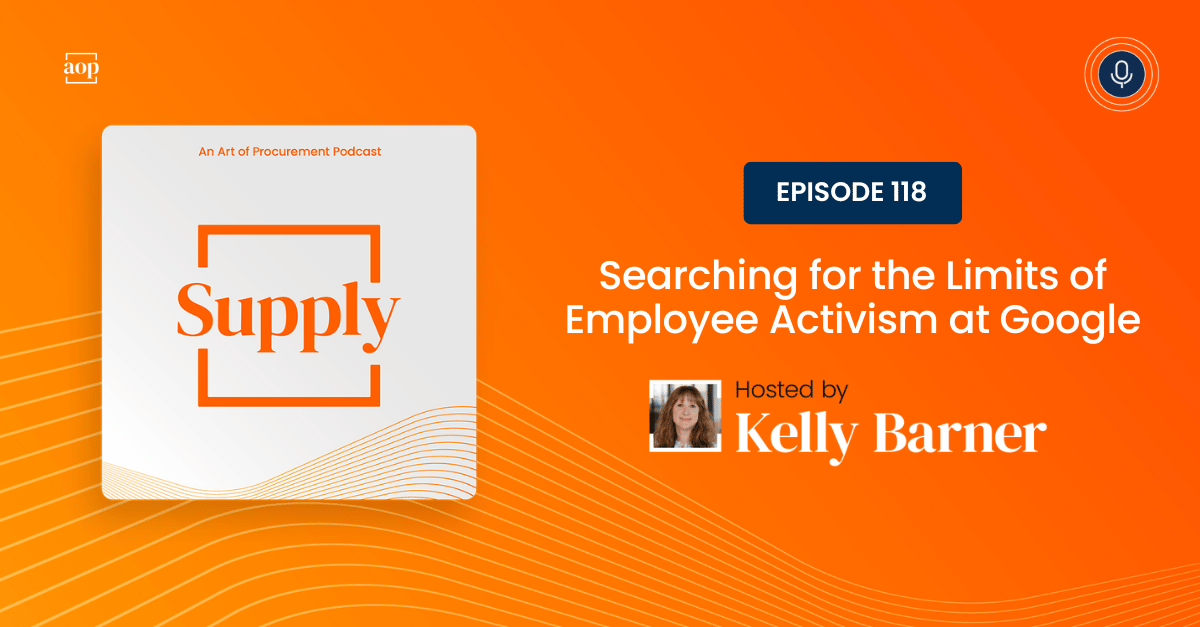
Searching for the Limits of Employee Activism at Google
Over the last few weeks, we have watched as student protests disrupted campus life across America. In some cases, the police had to intervene, and in other cases the protests all but ruined graduation ceremonies.
In a couple of months, some of those involved in the protests will be looking for jobs. How should their expectations for the consequences of demonstrating and speaking out need to change as they enter the private sector workforce?
As we saw play out at Google in April… quite a bit.
What happened at Google?
On March 4th, a Google employee was fired for protesting during a presentation given by an executive from Google’s branch in Israel. He was removed from the room while other meeting participants booed him, and then he was fired. But that was not to be the end of Google’s trouble.
On April 16th, Google suspended and then fired a group of employees for “sit in” protesting in the company’s New York and California offices. Some of them occupied the office of Google Cloud CEO Thomas Kurian until they were forcibly removed by law enforcement. This led to more terminations.
A Google spokesperson said: “A small number of employee protesters entered and disrupted a few of our locations. Physically impeding other employees’ work and preventing them from accessing our facilities is a clear violation of our policies, and completely unacceptable behavior. After refusing multiple requests to leave the premises, law enforcement was engaged to remove them to ensure office safety.”
All of these protests have to do with Project Nimbus, a $1.2 Billion contract between Google, Amazon, and the Israeli government that combines cloud computing infrastructure, artificial intelligence, and other technology services.
The Google leadership team has been loud and clear in their response.
CEO Sundar Pichai sent a company-wide memo to staffers urging them to keep politics out of the workplace. He reminded employees that Google “is a business, and not a place to act in a way that disrupts coworkers.”
He also asked the team not to argue over politically sensitive or disruptive issues, reminding them, “But ultimately we are a workplace and our policies and expectations are clear: this is a business, and not a place to act in a way that disrupts coworkers or makes them feel unsafe, to attempt to use the company as a personal platform, or to fight over disruptive issues or debate politics. This is too important a moment as a company for us to be distracted.”
Nothing Prepares Leaders for a Time Like This
Today’s professionals and leaders find themselves stuck between what they believe in and what their contribution to our company means for the world.
We’ve been told that we can each and all make a difference, and as consumers, it is routine to want the brands we spend money on to stand for the causes and movements we value. At the same time, we may need to draw a line at the office door.
Alison Taylor is a clinical associate professor at NYU’s Stern School of Business. She wrote a truly thought-provoking article for the Harvard Business Review titled, Corporate Advocacy in a Time of Social Outrage.
Here is some of what she had to say in that article:
- “Corporations are not democracies. Stakeholders are not an electorate.”
- “Employees have become the cultural auditors of their organizations. And wise executives must assume that anything they say or do can become public knowledge.”
She also went on to look at the expanding concept of corporate ethics and how this trend has led to where Google finds itself today:
“For decades, ethics was simply equated with legal compliance. Now our view of what it takes to be a ‘good company’ extends far beyond the boundaries of the law. Questions of ethics have come to reflect how a business impacts social, environmental, and political systems, and vice versa; a company can no longer operate solely as a self-interested, profit-maximizing black box. But there’s been no playbook to help executives navigate this new world.”
So, on the one hand, companies like Google face pressure from customers, shareholders, and employees to take a stand on matters of social importance. However, that pressure does not guarantee that everyone is going to agree with them, nor does it grant full right of expression to their employees. Not even regarding the same causes.
CEOs like Sundar Pichai have to advocate for certain causes and then play the bad guy when it is time to return everyone’s focus to the task at hand.
Off-the-Clock Activism
If you are a passionate person, good for you. The world needs your conviction and energy. That said, you may want to act on that passion in your personal time rather than trying to do it on the clock.
Employers and activist employees should keep in mind a datapoint I found and shared in one of my Saturday LinkedIn posts a few weeks back.
According to 2024 data from the Weber Shandwick Collective, 71 percent of employees want a politically neutral workplace. If Google has 180,000 employees in the United States, and 50 were dismissed for the March and April protests, that is 0.02 percent. It is a tiny fraction of their U.S. workforce.
Most of Google’s employees just want to do their job, collect a paycheck, and go home. I’m sure they have personal passions, beliefs, and convictions. They just manage to separate those from their professional scope of responsibility.
Links:





